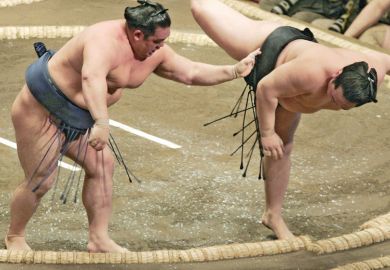Japanese police have arrested the former chancellor of a medical university on suspicion of embezzling institutional funds.
Kinuko Iwamoto was dismissed from her position as chancellor of Tokyo Women’s Medical University last year after allegations emerged about suspicious expenditure at the institution.
Iwamoto has now been accused of funnelling payments to an architectural consultant back to her own accounts, according to Japanese press.
While serving as vice-chancellor of the university in 2018, Iwamoto oversaw the construction of a new medical building, including hiring the president of an architecture firm as an adviser.
The unnamed architect is thought to have received upwards of ¥120 million (£629,000) over a two-year period, only for Iwamoto to allegedly have received the majority of it back in cash.
Iwamoto, who became chancellor of the private university in 2019, was subject to a police investigation last year, culminating in her arrest in January 2025. It was unclear how she planned to respond to the charges.
After her dismissal last year, the university apologised to students and parents “for the great concern caused” by financial concerns, which, at the time, related to other suspicious payments made through an alumni organisation.
“Going forward, our corporation will fundamentally review its management and operation system to prevent the recurrence of scandals and strive to restore the trust of all concerned parties,” it said.
In a statement released after the arrest, the university said it “deeply regrets” the situation and has pledged to “fully cooperate” with the police investigation.
The university also said it would “make every effort…to identify the cause [of the issues] and prevent [any] recurrence”.
A third-party committee has already investigated mismanagement at the university in the wake of Iwamoto’s dismissal and compiled a report with recommendations, which the university said it was in the process of implementing.
“We hereby reaffirm our determination…to create a new Tokyo Women's Medical University that is autonomous, public, trustworthy, transparent, and sustainable,” the institution said in a statement.
Neighbouring Tokyo Medical University faced similar scrutiny in 2018 after the president and chair of the institution resigned following claims they had attempted to bribe government officials.
Newspapers then reported that Tokyo Medical University was systematically docking points from female candidates applying to study there, leading to a widespread backlash.
Register to continue
Why register?
- Registration is free and only takes a moment
- Once registered, you can read 3 articles a month
- Sign up for our newsletter
Subscribe
Or subscribe for unlimited access to:
- Unlimited access to news, views, insights & reviews
- Digital editions
- Digital access to THE’s university and college rankings analysis
Already registered or a current subscriber?








